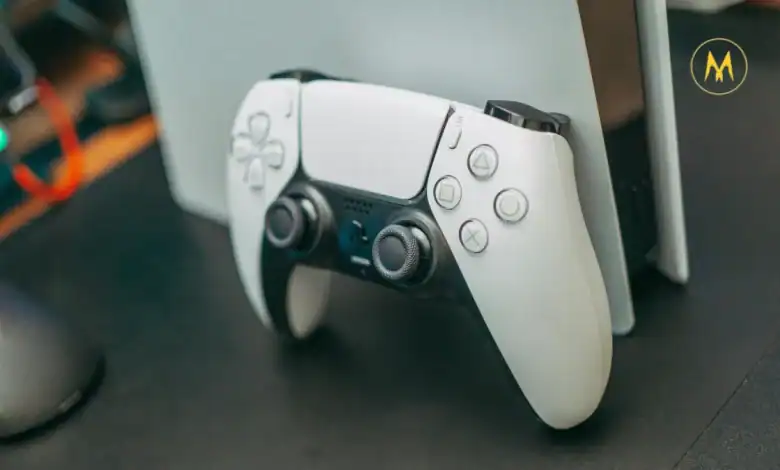Xbox Series X vs PlayStation 5: A Deep Dive into Next-Gen Gaming Technology
Hardware and Performance

Introduction
The world of gaming has changed dramatically with the arrival of the Xbox Series X and PlayStation 5. These two next-gen consoles are not just upgrades; they are complete leaps forward in technology, performance, and gaming experience. Both have loyal fan bases, groundbreaking features, and exclusive titles that make the choice between them more exciting—and challenging—than ever.
In this detailed guide, we will compare their hardware, performance, design, exclusive games, online services, and unique features to help you decide which console fits your needs. Whether you are a casual gamer or a competitive player, this article will break down the facts in simple terms.
Hardware and Performance
When it comes to raw power, both consoles bring something remarkable to the table.
The Xbox Series X boasts a custom AMD Zen 2 processor with 8 cores clocked at 3.8 GHz, along with a GPU capable of 12 teraflops of processing power. This allows the Series X to deliver consistent 4K gaming and even target 120 frames per second in certain titles.
READ MORE: 5G in the United States: Coverage, Speed, and What to Expect in 2025
The PlayStation 5 is also powered by a custom AMD Zen 2 CPU, but it runs slightly slower at 3.5GHz. Its GPU provides 10.28 teraflops, which is slightly lower on paper, but Sony’s unique design choices help the PS5 deliver smooth performance with incredible visual detail.
Both consoles use ultra-fast NVMe SSDs, which drastically reduce loading times. The Xbox Series X has a 1TB storage drive, while the PS5 has 825GB. However, both support expandable storage options.
Graphics and Visual Quality
The difference in graphics between these two consoles is subtle but noticeable in certain games.
The Xbox Series X tends to offer slightly sharper visuals in multi-platform games due to its higher GPU power. On the other hand, the PS5’s unique architecture and its Tempest 3D AudioTech create a more immersive experience for players who value atmosphere as much as visuals.
Ray tracing, realistic lighting, and detailed textures are present in both consoles, making them feel truly “next-gen.” Your choice here may depend more on personal preference than raw numbers.
Exclusive Games
Exclusive titles have always been a major factor in choosing a console.
On the Xbox Series X side, you have titles like Halo Infinite, Forza Horizon 5, and the upcoming Fable. Xbox Game Pass also gives access to a massive library of games, including new releases on day one.
For the PlayStation 5, exclusives like Spider-Man: Miles Morales, Ratchet & Clank: Rift Apart, and Demon’s Souls set the bar high for quality and storytelling. Sony’s studios are known for crafting cinematic experiences that feel like interactive movies.
If exclusive titles are your main focus, the PS5 currently has a stronger lineup, though Xbox is rapidly catching up.
Design and Build
The Xbox Series X has a minimalist, boxy design that blends well into most entertainment setups. It is solid, quiet, and built for efficiency.
The PS5 has a futuristic, curved look with white panels and a black core, making it stand out in any living room. However, its size is significantly larger than the Series X, which can make it harder to fit in smaller spaces.
READ MORE: Top 5 Best Ring Cameras for Home Security [2025 Review]
Both consoles run very quietly compared to previous generations, thanks to improved cooling systems.
Online Services and Subscriptions
Xbox’s Game Pass Ultimate is widely considered one of the best deals in gaming. For a monthly fee, you gain access to hundreds of games, including day-one releases and cloud gaming options.
PlayStation’s new Plus Tiers (Essential, Extra, and Premium) provide a variety of classic and modern games, but the library is still catching up to Game Pass in terms of day-one availability.
Your choice here may depend on whether you want immediate access to a large library or prefer curated, exclusive experiences.
Controller Technology
The Xbox Series X controller builds on a familiar design, with textured grips, a dedicated share button, and responsive triggers. It is comfortable for long gaming sessions and works well across devices.
The PS5’s DualSense controller is a game-changer. It features adaptive triggers and advanced haptic feedback that respond differently depending on in-game actions. This adds a new layer of immersion, especially in titles designed specifically for DualSense features.
Price and Value
At launch, both consoles were priced at $499 for the standard editions. Over time, availability and promotions may affect pricing.
The Xbox Series S, a smaller and less powerful sibling of the Series X, offers a budget-friendly entry into next-gen gaming at $299. PlayStation also offers a Digital Edition of the PS5 for $399, which lacks a disc drive.
Value for money depends on how much you care about physical media, exclusives, and subscription services.
READ MORE: iPhone 17 Release Date: What to Expect and When to Get Excited
Final Thoughts
Both the Xbox Series X and PlayStation 5 represent incredible leaps forward in gaming technology. The Xbox Series X excels in raw power and subscription value through Game Pass, making it a fantastic choice for players who want variety and performance. The PlayStation 5, however, delivers unmatched exclusive games and a controller experience that truly feels next-gen.
Your choice will ultimately come down to what matters most to you—whether it’s raw power, game library, or immersive features. No matter which you pick, you’re stepping into a new era of gaming.
Frequently Asked Questions
The Xbox Series X has more raw GPU power, but both deliver excellent next-gen performance.
Currently, the PS5 has more high-profile exclusives, but Xbox is closing the gap with Game Pass titles.
Yes. Both support backward compatibility, but Xbox offers a broader selection of older titles.
Xbox Game Pass offers more value for money, while PlayStation Plus focuses on curated experiences.
They are both technically capable of 8K output, but most games currently run at 4K.





7km26s
hk8irm
Thanks for sharing. I read many of your blog posts, cool, your blog is very good.
Thank You So Much, Your Most Welcome